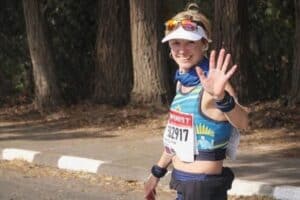We take a look at some interesting stats and facts around the annual race.

The 97th edition of the Comrades Marathon will be held in KwaZulu-Natal on Sunday, with thousands of runners taking to the road between Durban and Pietermaritzburg.
Here’s five things you might not know about the world’s largest ultra-marathon.
How it started
Launched more than a century ago, the race has become a permanent fixture on the calendar, but there is a reason it was started in the first place.
In 1921, World War I veteran Vic Clapham organised the first Comrades Marathon to commemorate South African soldiers who died during the war.
Only 34 brave individuals lined up for the inaugural edition of the race, which now regularly attracts more than 20,000 entrants.
Runners who finish between 11 and 12 hours this weekend will receive a Vic Clapham medal in memory of the race founder.
Clothes drive
The race has six official charities – CHOC, Childline, Rise Against Hunger, Community Chest, the Hillcrest Aids Centre Trust and the SANParks Honorary Rangers – which runners can support by raising money.
There is another way that participants give back through an unofficial clothes drive (of sorts) on the morning of the race.
It is often cold at the start and many runners wear an extra layer of clothing, but once it warms up during the race, the extra clothes are removed and dropped at the side of the road.
The items of clothing are then collected by members of local communities.
Winner’s baton
The first person across the line holds a baton which carries a message between the mayors of eThekwini and Msunduzi.
Only twice has the winner of the race not carried the baton across the line.
In 1967, Tommy Malone stumbled before the finish (baton in hand) and Manie Kuhn swept past to win by one second.
In 1992, Charl Mattheus (who held the baton) was disqualified for an alleged doping offence and the victory was given to second-placed finisher Jetman Msuthu. Mattheus went on to win the race again in 1997.

Most victories
A total of six people – Arthur Newton, Wally Hayward, Hardy Ballington, Jackie Mekler, Bruce Fordyce and Elena Nurgalieva – have won the race five times, but only Fordyce and Nurgalieva have gone on to secure more victories.
Fordyce triumphed in the men’s race nine times between 1981 and 1990, becoming a household name and stamping his place as a local road running legend.
Nurgalieva, from Russia, won the women’s race eight times between 2003 and 2013. She also finished second behind her twin sister, Olesya Nurgalieva, in 2007 and 2009.

Prize money
While the race is now the most lucrative in the country, with R825 000 going to the men’s and women’s winners, prize money wasn’t offered until 1995.
When American athlete Alberto Salazar won in 1994, he asked for some of his prize money to be donated to charity, and he was surprised to learn that there wasn’t any.
With cash incentives being introduced the following year, Shaun Meiklejohn quit his full-time job to focus on training, and he was rewarded for his efforts by receiving R45,000 for first place.
Support Local Journalism
Add The Citizen as a Preferred Source on Google and follow us on Google News to see more of our trusted reporting in Google News and Top Stories.








